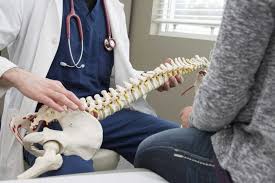When preparing for orthopedic surgery, it is key to approach your consultation with the right questions. Making sure that you have a comprehensive understanding of your diagnosis, available treatments, and recovery process can improve your experience. You can make informed decisions about your health and treatment plan by asking detailed and specific questions. Here is a breakdown of key areas to address during your discussion with an orthopedic surgeon:
Understanding Your Diagnosis
Your orthopedic surgeon should clarify the specific condition affecting you and its underlying cause. Knowing how serious your condition is if left untreated is also helpful. For instance, your surgeon should explain whether your issue is degenerative or the result of an acute injury. They may recommend diagnostic tools such as X-rays or MRIs to better understand the condition. Thoroughly discussing these elements lays the groundwork for subsequent treatment planning.
Treatment Options and Surgeon Expertise
Once the diagnosis is clear, the discussion shifts to treatment options. An orthopedic surgeon often provides multiple pathways, ranging from non-invasive therapies to surgical interventions. Ask questions about the recommended treatment and alternative options to help you evaluate what will work best for your lifestyle and needs. For instance, you may ask whether physical therapy or lifestyle modifications could serve as an alternative to surgery.
It is equally helpful to inquire about the surgeon’s experience treating your condition. This includes understanding how many similar cases they have handled and the success rates. Your surgeon should also outline their method for performing the surgery, as techniques can vary.
Surgery and Recovery
Preparation for surgery and recovery are core topics to cover in your consultation. Understanding the specifics of how the surgery will be performed, including the type of anesthesia to be used and associated risks, sets realistic expectations. You will also want to address practical matters, such as the length of your hospital stay and whether specialized care or rehabilitation will be necessary afterward.
Discussing recovery is just as key as understanding the surgical procedure itself. Your orthopedic surgeon should explain the typical recovery timeline, detailing what you can expect during different stages. Be sure to ask how pain management will be handled, including whether medication will be required and for how long. Questions about post-operative physical therapy are equally relevant, as this aspect often plays a key role in regaining functionality.
It is also valuable to ask if modifications to your home or extra medical equipment will be required after surgery. For instance, some procedures might necessitate installing handrails or acquiring a walker. Finding out if you will need assistance at home after surgery and for how long can help you put the necessary arrangements in place.
Complications and Future Recommendations
While orthopedic surgeries are generally safe, like any surgical procedure, they do carry certain risks. Discussing the signs of potential complications and how to address them is key. This makes sure that you are well-prepared to act quickly and appropriately should any issues arise. You should also ask whether the surgery is expected to resolve your issue completely or if further treatments may be needed later. Long-term management may require more interventions, and knowing this information in advance will help you plan for the future.
Consult an Orthopedic Surgeon Today
Preparing for orthopedic surgery is a layered process that requires addressing several key areas during your consultation. From understanding your diagnosis and treatment options to mapping out your recovery and financial planning, these discussions empower you to make informed choices for your health. To gain further clarity on your needs, consult an orthopedic surgeon today.
- Choosing the Right Plastic Surgeon for Your Cosmetic Procedure
- Understanding Different Types of Laser Treatments for Skin Rejuvenation
- Why a Family Dentist is Key for Maintaining Oral Health
- The Benefits of Regular Visits to a Wellness Spa
- Exploring the Emotional and Psychological Triggers of Eating Disorders


Leave a Reply